Best movies like Cavalleria rusticana
A unique, carefully handpicked, selection of the best movies like Cavalleria rusticana Starring Plácido Domingo, Yelena Obraztsova, Fedora Barbieri, Renato Bruson, and more. If you liked Cavalleria rusticana then you may also like: Otello, Carmen, The Pirates of Penzance, Porgy and Bess, Maytime and many more popular movies featured on this list. You can further filter the list even more or get a random selection from the list of similar movies, to make your selection even easier.
You may filter the list of movies on this page for a more refined, personalized selection of movies.
Still not sure what to watch click the recommend buttun below to get a movie recommendation selected from all the movies on this list
The Pirates of Penzance
In spite of being apprenticed to a Pirate King as a child, Frederic has led a very sheltered life. So when he arrives in Cornwall with his boisterous shipmates, there are a few surprises in store for him!
Porgy and Bess
Set in the early 1900s in the fictional Catfish Row section of Charleston, South Carolina, which serves as home to a black fishing community, the story focuses on the titular characters, crippled beggar Porgy, who travels about in a goat-drawn cart, and the drug-addicted Bess, who lives with stevedore Crown, the local bully.
The Full Monteverdi
The Full Monteverdi follows the simultaneous break-up of six couples, from shocking revelation, vengeful anger and erotic longing for reconciliation, as an ensemble film. Vulnerable and disarming, it draws viewers into its emotional journey and intensely moving portrait of contemporary love.
Magical Maestro
After he is rejected by the Great Poochini as an opening act, Mysto the Magician gets his revenge by conducting his next operatic performance.
The Mikado
In a small Japanese town, Ko-Ko is appointed to the unenviable position of executioner. Knowing he must successfully perform before the appearance of the Mikado in a month's time, Ko-Ko finds a suitable victim in Nanki-Poo, who is distraught over his unrequited love for the maiden Yum-Yum. Nanki-Poo agrees to sacrifice his life if he is allowed to spend his remaining days with Yum-Yum, who is betrothed to Ko-Ko.
The Tales of Hoffmann
A young poet named Hoffman broods over his failed romances. First, his affair with the beautiful Olympia is shattered when he realizes that she is really a mechanical woman designed by a scientist. Next, he believes that a striking prostitute loves him, only to find out she was hired to fake her affections by the dastardly Dapertutto. Lastly, a magic spell claims the life of his final lover.
House of Ricordi
The film covers a hundred years in the lives of the Ricordi family, the Milan publishing house of the title, and the various composers and other historic personalities, whose careers intersected with the growth of the Ricordi house. It beautifully draws the parallel between the great music of the composers, the historic and social upheavals of their times, as well as the "smaller stories" of the successive generations of Ricordi.
Puccini
Produced in Italy in breathtaking Technicolor, this biographical story of Puccini (played by L'avventura's Gabriele Ferzetti) spans his creative life from early student days to the height of success, including his early flop Madama Butterfly and his incomplete Turandot. Along the way he encounters three women who change his life, including a sexy, beautiful singer (Two for the Road's Nadia Gray) whom he drops for a small town girl (Sirocco's Marta Toren), and a servant girl who commits suicide over him. Well-selected excerpts from Manon, La Boheme, Madama Butterfly and Turandot are featured along with other Puccini music, including the voice of Beniamino Gigli. Sets, costumes and production values are first class, all sumptuously filmed by Claude Renoir.
Everybody Does It
Leonard Borland loves his monied wife, but with his wrecking business looking shaky he treasures her all the more. So when she decides to try again to become an opera singer he indulges her. While organising a concert for her he meets glamorous Cecil Carver. She in turn discovers Leonard has a splendid voice, and encourages him to use it for reasons very much her own.
Casta diva
Martha Eggerth heads the cast of Casta Diva, but the central character is famed Italian composer Vincenzo Bellini, here played by American actor Phillips Holmes. Paying but scant attention the facts, the film concentrates on Bellini's colorful love life. Evidently the film went through several rewriting processes, as witness the curious performances of Donald Calthrop and Arthur Margetson, whose characters do complete about-faces halfway through the story. Amidst so many British accents, Martha Eggerth's Polish intonations seem out of place, but she photographs beautifully and sings quite well. Casta Diva was attractively filmed on location in Naples. Not to be confused with the 1954 remake (by Gallone himself) or to the English language version "The Divine Spark" (also directed by Gallone and starred by Eggerth).
Basta guardarla
Enrichetta, a young peasant girl who lives in a little village, joins Silver Boy as a dancer.
La Cenerentola
The Prince, Don Ramiro (who has changed places with his valet, Dandini), meets Cenerentola and they are instantly attracted to each other. When the Philosopher, Alidoro, later takes Cenerentola (dressed in magnificent clothing) to the palace, Dandini (still posing as the prince) tries to talk of love to her, but Cenerentola rejects him, saying that she is in love with his 'valet'. Ramiro, who has overheard this comment, is overjoyed, and immediately proposes to her, but Cenerentola says that he must first seek her out and then, if he still felt the same way, she would marry him. She gives him one of a matching pairs of bracelets, telling him to look for its companion on her right arm (she then leaves the palace). Ramiro ends the masquerade, and he and Dandini resume their true identities. The Prince then sets out on his quest - little realising that destiny, in the form of a violent thunderstorm, is about to take a hand in the affair.
Il Barbiere di Siviglia
Count Almaviva is in love with Rosina. However, she is currently staying with Dr. Bartolo – who desires to marry her. By using a series of disguises, Almaviva manages to pass letters to Rosina and serenade her with his beautiful voice. Dr. Bartolo does his best to stop Almaviva but is constantly thwarted. In the end, Count Almaviva marries Rosina and Dr. Bartolo comes to terms with his defeat.
Mozart: Le Nozze di Figaro
David McVicar's spellbinding production of LE NOZZE DI FIGARO is set in 1830s post-revolution France, where the inexorable unravelling of an old order has produced acute feelings of loss. In the relationship between Finley's suave, dashingly self-absorbed Count and Röschmann's passionately dignified Countess, which lies at the tragic heart of the opera, the sexy ease between a feisty Figaro (Erwin Schrott) and a sassy Susanna (Miah Persson) is starkly absent, the tenacious spark between Marcellina (Graciela Araya) and Bartolo (Jonathan Veira) suggesting what might be rekindled. The production is superbly complemented by the beauty of Paule Constable's lighting and Tanya McCallin's evocative sets. Antonio Pappano conducts (and accompanies the recitatives) with invigorating wit and emotional depth.
La traviata
This “Traviata” became one of the most succesful of all opera films, especially in France, where 800,000 Parisian cinemagoers flocked to it in the first six week. It was nominated for two Oscars (for production and costume design) and won BAFTAs in those two categories, as well as receiving BAFTA and Golden Globe nominations as 1983’s Best Foreign-Language Film.
Das Rheingold
From the gorgeous scene deep in the river Rhine that opens the opera, up to the magic Rainbow Bridge that appears at the end, leading to a glistening Valhalla, Otto Schenk’s production captures the scenic world of Wagner’s Ring as brilliantly as James Levine and the Met orchestra capture the musical world. The cast is incomporable: an astounding James Morris as the young god Wotan, the great Christa Ludwig as his wife Fricka, incandescent Siegfried Jerusalem as Loge, the wily god of fire, and Ekkehard Wlaschiha as a complex Alberich.
Il Mefistofele
Arrigo Boito's Il Mefestefele was first performed in 1868 and his most known work. In Ken Russell's modern interpretation presented by the Genoese Opera, it has Faust as an ageing hippy. He smokes marijuana and is tormented by his lost youth. Mephisto makes a bet with God that he can turn anyone to pagan life, even someone as innocent as Faust. From then on it is a battle of good against evil in a flamboyant, surreal display of primary colours, PVC costumes, nurses with swastikas, rocket trips, love and even characters dressed as Donald Duck and Mickey Mouse. Ken Russell said because the devil is always with us is his reason for the contemporary setting.
Die Walküre
The gorgeous and evocative Otto Schenk/Günther Schneider-Siemssen production continues with this second opera in Wagner’s Ring cycle. Hildegard Behrens brings deep empathy to Brünnhilde, the favorite daughter of the god Wotan (James Morris) who nevertheless defies him. Morris’s portrayal of Wotan is deservedly legendary, as is Christa Ludwig, as Fricka. Jessye Norman and Gary Lakes are Sieglinde and Siegmund, and Kurt Moll is the threatening Hunding. James Levine and the Met orchestra provide astonishing color and drama. (Performed April 8, 1989)
Götterdämmerung
The stupendous climax to Wagner’s four-part Ring cycle is brilliantly realized by the Otto Schenk/Günther Schneider-Siemssen production and byJames Levine’s monumental conducting. The Met orchestra, chorus, and an all-star cast make this Götterdämmerung one that truly rises to the occasion. Hildegard Behrens’s Brünnhilde must be experienced to be believed, as does Matti Salminen’s richly sung, domineering Hagen. At the center of the drama is Siegfried Jerusalem as Siegfried, who does not realize he has been drawn into a plot of betrayal until it is too late. Christa Ludwig is magnetic as Waltraute and Ekkehard Wlaschiha is a compelling Alberich.
Pagliacci
The story is set in southern Italy and recounts the tragedy of Canio, the lead clown (or pagliaccio in Italian) in a commedia dell'arte troupe, his wife Nedda, and her lover, Silvio. When Nedda spurns the advances of Tonio, another player in the troupe, he tells Canio about Nedda's betrayal. In a jealous rage Canio murders both Nedda and Silvio. Although Leoncavallo's opera was originally set in the late 1860's, Zeffirelli's production is updated to the period between World War I and World War II.
Rigoletto
This tragic story revolves around the licentious Duke of Mantua, his hunch-backed court jester Rigoletto, and Rigoletto's beautiful daughter Gilda. The opera's original title, La maledizione (The Curse), refers to the curse placed on both the Duke and Rigoletto by a courtier whose daughter had been seduced by the Duke with Rigoletto's encouragement. The curse comes to fruition when Gilda likewise falls in love with the Duke and eventually sacrifices her life to save him from the assassins hired by her father.
Verdi: La Traviata
Live from La Scala Saturday 07 July 2007. In this live performance of Giuseppe Verdi's opera, Violetta, a courtesan much wooed by Parisian society, organises a grand party that is attended, amongst others, by the young Alfredo Germont. He confesses his feelings to Violetta, who is already suffering from consumption. She vacillates between genuine affection and a realistic assessment of her situation as a "fallen woman", which precludes any lasting relationship with a man.
La Scala di seta
"The Silken Ladder" - Dormont is the teacher and guardian of the beautiful Giulia, and he is determined that she will marry Blansac despite her continual rejection of his advances. The fact is that Giulia is already married to Blansac's friend Dorvil, who every night is able to exercise his conjugal rights because Giulia lowers a ladder made of silk down to him from her bedroom window.
Der Rosenkavalier
Live performance, new production season 1984-5. BBC 2 Television relay on 30 March 1985 of performance of February 11.
Puccini: Tosca
The star singers in this revival of the 2006 production were Angela Gheorghiu, Jonas Kaufmann and Bryn Terfel; the Royal Opera Chorus and the Orchestra of the Royal Opera House were under the baton of Antonio Pappano, the Music Director of the Royal Opera House. The pageantry of church ritual, the darkness of a brooding study with its hidden torture chamber and the false optimism of the light of a Roman dawn - all throw into relief the love of the beautiful diva Tosca, the idealism of her lover Cavaradossi and the deadly, destructive obsession of the malevolent Chief of Police, Scarpia. Drama, passion and fabulous music.
Samson et Dalila
While the rest of the Hebrews bewail their fate, Samson alone trusts in God's promise of liberty. Abimelech, the Philistine satrap of Gaza, enters to mock the Hebrews' God, proclaiming the superiority of Dagon, and the Hebrews are afraid of him. But calls them to show some defiance, so Abimelech attacks Samson with his sword. Samson seizes the sword and strikes him dead. The Hebrews scatter and the High Priest of Dagon appears, cursing the Hebrews. When a messenger reports that the Hebrews are ravaging the harvest, the High Priest forms a plan to use Delilah to overcome Samson's strength. Delilah's beauty is such that Samson can't resist her for long. She begs to know the secret of his supernatural strength, but he refuses, though he says he loves her. Delilah betrays Samson by having some Philistine soldiers seize him and throw him into a prison in Gaza, where his hair is cut off.
La Rondine
This 2008 version of Puccini's LA RONDINE (The Swallow) features acclaimed conductor Carlo Rizzi and polished theatre-direction from Graham Vick, recorded at the Teatro La Fenice, in Venice.
Lucia di Lammermoor
This telecast offers a rare opportunity to see the legendary Joan Sutherland in the role that first catapulted her to international stardom. She drove audiences wild by the way her opulent voice caressed the music’s long phrases and sprinted effortlessly through the fiendish runs, trills, embellishments and stratospheric high notes. One of the glories of the operatic world, her portrayal of Donizetti’s hapless heroine is a multifaceted and moving characterization. The incomparable tenor Alfredo Kraus is Edgardo, the man Lucia loves but cannot have. (Performance taped November 13, 1982. Broadcasted September 28, 1983.)
Puccini: Tosca (Arena di Verona)
Puccini’s melodrama about a volatile diva, a sadistic police chief, and an idealistic artist has offended and thrilled audiences for more than a century. Critics, for their part, have often had problems with Tosca’s rather grungy subject matter, the directness and intensity of its score, and the crowd-pleasing dramatic opportunities it provides for its lead roles. But these same aspects have also made Tosca one of a handful of iconic works that seem to represent opera in the public imagination.
Andrea Chenier
France, 1792. Chenier is an idealistic poet, in love with the aristocratic Maddalena. While Chenier supports such notions as "liberte, fraternite egalite," his sympathies do not extend to the current Reign of Terror. Likewise, the Revolutionary Tribunal has no need for poets or their girlfriends, especially those judged to be an Enemy of the State. Heads will roll.
Il signor Bruschino
Il signor Bruschino is the last of the five one-act operas - farsa giocosa - in which the young Rossini first demonstrated his operatic genius. The stage is small and the beautifully elegant and this shining production by Michael Hampe, recorded in May 1989, provides one and a half hours of the entertaining story about "the son won in a game" as it is subtitled. The staging transfers to the screen perfectly and the cast of principals, led by Alessandro Corbelli, Alberto Rinaldi and Amelia Felle provide musical excellence together with the flexible Stuttgart Radio Symphony Orchestra under Gianluigi Gelmetti.
Don Carlo - ROH
Rolando Villazón Triumphantly Returns To The Stage As Don Carlo In The 2007/2008 Royal Opera House'S Producton Of Don Carlo. National Theatre director Nicholas Hytner's new staging of Verdi's grandest-- and arguably greatest -- opera, Don Carlo, was the highlight of the 2007/2008 Royal Opera House season. This new production marked Rolando Villazón's much anticipated and triumphant return. Set amidst the political, religious and sexual intrigue of the 16th century Spanish court, this epic work tells the tragic story of Don Carlo, a virtuous young prince who is pitted against the powers of a dominant, corrupt society. First staged at The Royal Opera House in 1886, this new production is the first new version of the 5-Act complete opera to be staged at Covent Garden in 50 years. With sets and costumes by Bob Crowley, direction by Nicholas Hytner, and an enviable cast, this production of Don Carlo is worthy of the greatness of Verdi's original, masterful work.
Adriana Lecouvreur
Starring Angela Gheorghiu as the celebrated French actress Adriana Lecouvreur and Jonas Kaufmann as her lover Maurizio, Count of Saxony, Cilea s verismo drama explores celebrity, romance, jealousy, and death. The trio of sublime voices is completed by Russian mezzo-soprano Olga Borodina as Adriana s jealous rival, the Princess de Bouillon. David McVicar s hit production the first performance of the opera at the Royal Opera House, Covent Garden for more than a century presents the life of the French actress as a blurring of the distinction between fantasy and reality. The action revolves around a life-size Baroque Theatre, taking us from the bustle and colour of the first act backstage at the playhouse, to the bare final scenes as the drama reaches its fatal climax.
L'elisir d'amore
Nemorino is hopelessly in love with Adina but she is attracted to a dashing captain.
La Bohème
John Copley's enduring production of one of the most famously melodious and popular of all operas is a classic of the Royal Opera repertory. With historically accurate designs by Julia Trevelyan Oman and an excellent cast headed by Hibla Gerzmava and Teodor Ilincai, this 2009 revival, in which conductor Andris Nelsons makes a distinguished Royal Opera House debut, does full justice to Puccini's masterpiece. Recorded 2009.
Donizetti: Don Pasquale
Determined to wed, a foolhardy old man is tricked by his friends into a sham wedding with an impish widow who turns into a harpy -- which subsequently cures his desire to marry in composer Gaetano Donizetti's famous opera buffa. Baritone Alessandro Corbelli plays the title character in this lush 2002 production also starring soprano Eva Mei and tenor Antonino Siragusa, with maestro Gérard Korsten leading the Chorus and Orchestra of Teatro Lirico.


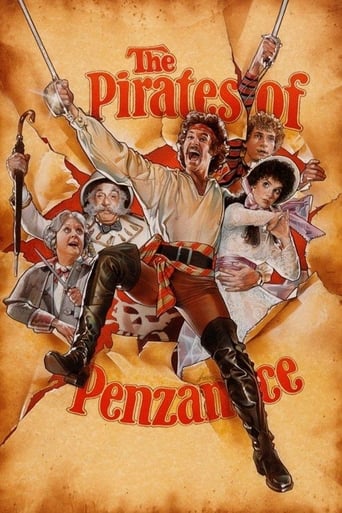
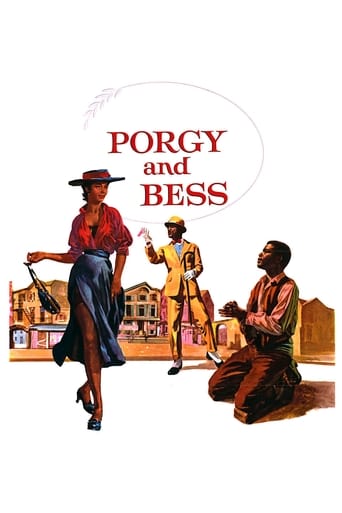




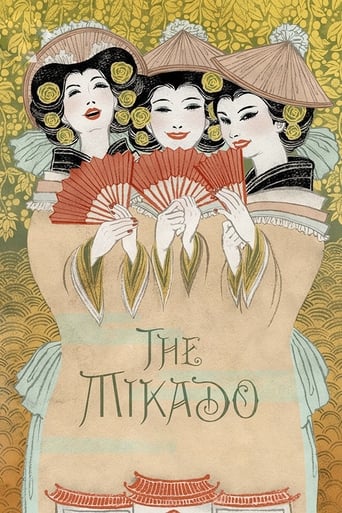

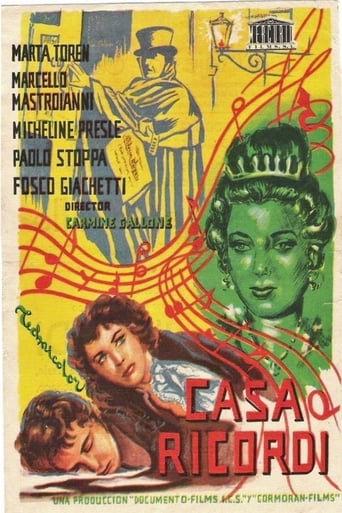







































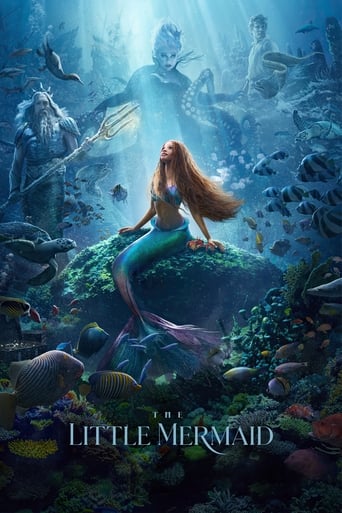
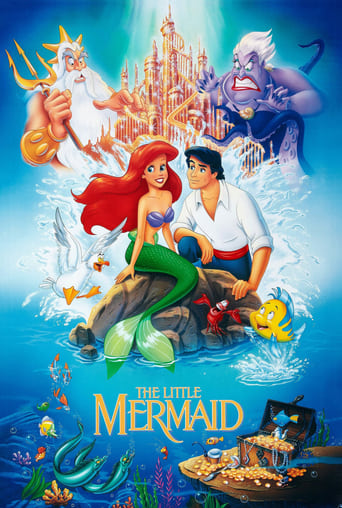
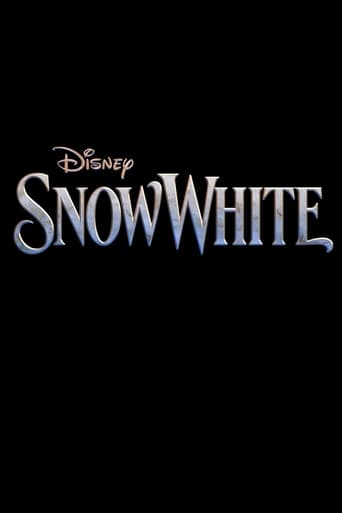
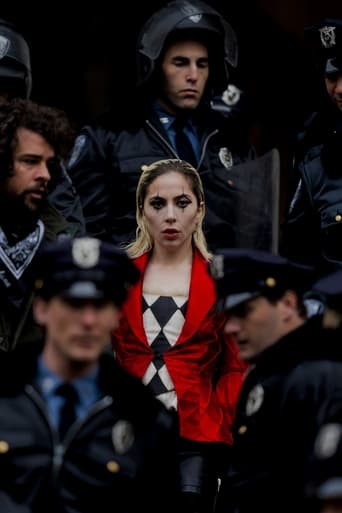
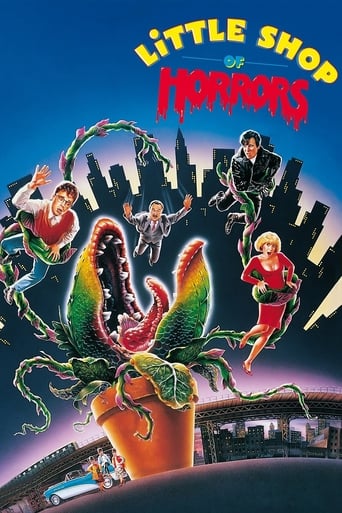
Otello
Based on Shakespeare's play, Verdi's opera depicts the devastating effects of jealousy, "...the green-eyed monster which doth mock the meat it feeds upon". Believing Otello has promoted the fast-rising Cassio over himself, Iago plots to destroy both Cassio and Otello. Iago convinces the jealous Otello that his beautiful wife Desdemona is unfaithful, and that Cassio is her lover. Jealousy is followed by tragedy, then retribution, "Has Heaven no more thunderbolts?"